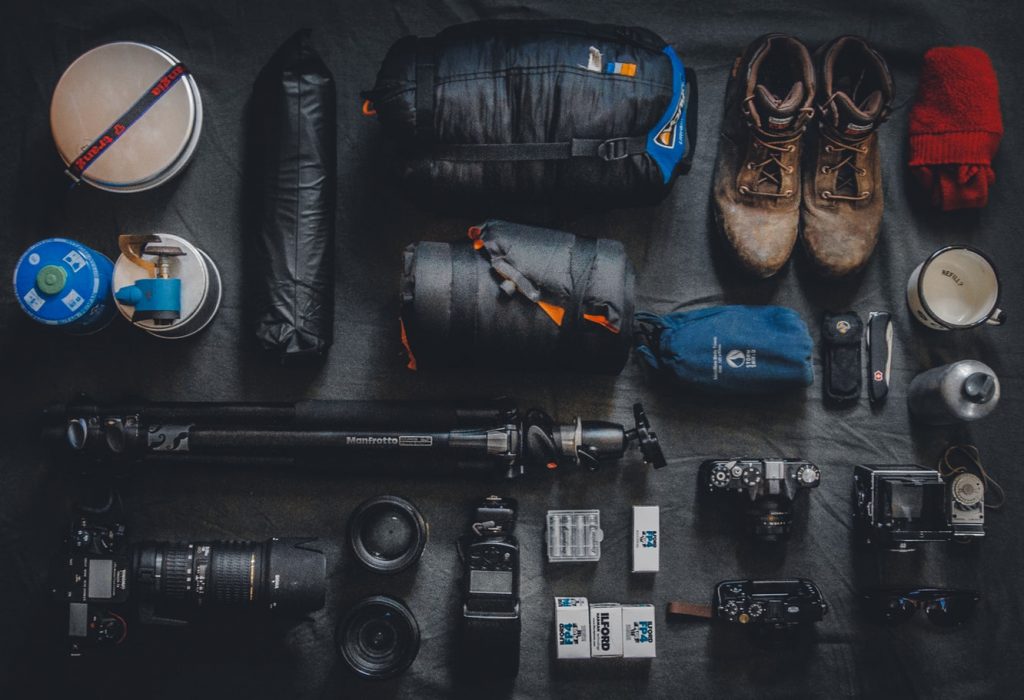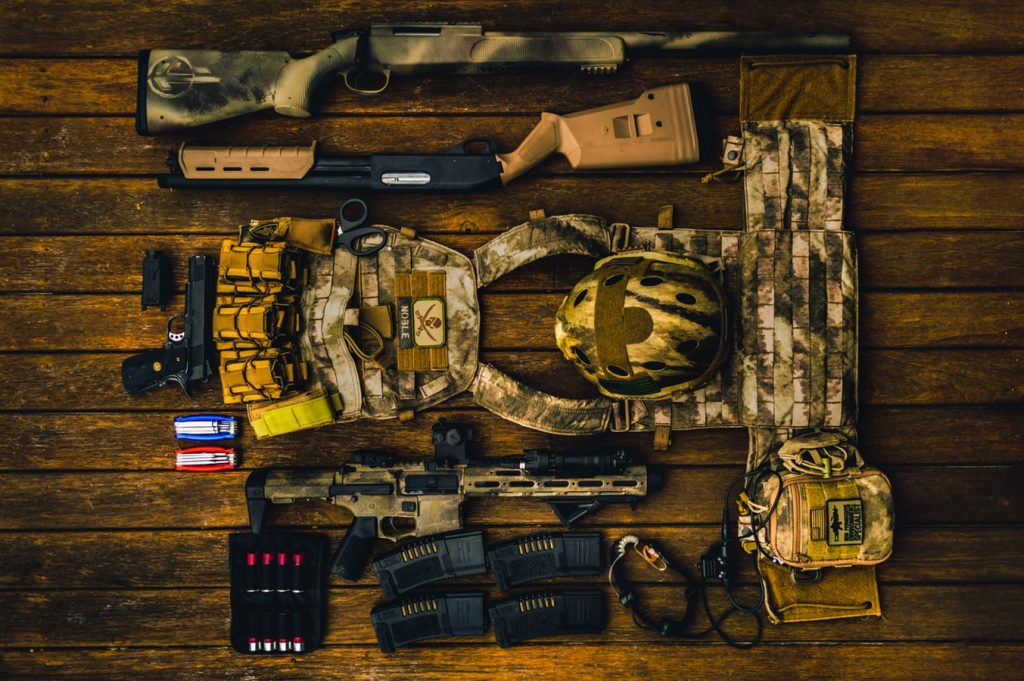Whether going on a hike or you’re surviving a nuclear apocalypse, what you take on the road will mean the difference between life and death. That is why it is important that you have a survival backpack checklist when packing your bag.
I learned this all the hard way after a LARPing adventure in college went terribly wrong, and I found myself apart from my companions in the woods for three straight days.
Keep in mind that formerly-useful items will become not only useless when you’re in a survival situation. Cellphones and smartphones, for example, could become mere dead weight in your pocket if you’re deep in the woods and miles away from the nearest service tower, or a national disaster strikes and the power has gone out.
Worse yet, emergency services might be overwhelmed, or all your contacts could be dead. Hope for the best. Prepare for the worst.
Top 10 Items In Your Survival Backpack Checklist

You could potentially make use of hundreds of supplies, but your carrying capacity might be very limited. So here are just ten items that you must have in your survival backpack checklist in order to optimize your chances of survival:
Compass
If you’re trapped at the top of a mountain during a storm, or if you’re lost deep in the woods, all the food, survival gears and weapons in the world won’t save you if you have no idea where you’re going. When selecting a compass for your travels, it must have three traits: fast, durable, and reliable.
Speed is crucial; older compasses will take minutes before the needle points north. Durability is highly important; a fragile compass will crack and break if you bump it hard against your pack, you drop it, or you slip and fall down a steep ravine.
Reliability, of course, because if your compass isn’t pointing north when you believe it is, it will be utterly useless to you.
Multi-tool
Hands down, we believe the multi-tool is the most compact and efficient item on this list because it’s just that – a variety of useful tools with different functions fitted into one device.
These include a pocketknife, wire-cutter, pliers, screwdriver, bottle opener, tweezers, nail files, scissors, a magnifying glass, a miniature fishing rod, and even a toothpick (which could be more important than you’d think; tooth infections, if left untended, can potentially kill you).
First aid kit

Without access to medical attention, a simple cut from a fall or an animal bite could turn into a fatal infection. Elastic bandages will be necessary, as well as adhesive tape to keep the bandages fitted.
Antibiotic ointments and disinfectants, to clean the wound before the bandage is placed. Ibuprofen could also be useful, but remember that it is a blood thinner and should not be used in the case of bleeding wounds. If it’s a nuclear disaster, be sure there’s a bottle of iodine included in your kit — iodine, when consumed carefully, will block the thyroid from deadly radiation entering your bloodstream.
Duct tape
Often praised as the most useful item in the world, even though it’s actually quite terrible at closing up ducts. We won’t hype up duct tape quite that much, but it indeed has many uses.
Duct tape can patch your clothing, your clothing, and your shoes. Perhaps you could make a rope with it. It can even be used for medical purposes, as an alternative to gauze to bind wounds, a leg splint or arm sling.
And, in the case of a nuclear strike, you should use duct tape to seal the edges of your windows to prevent irradiated particles from entering your shelter.
Space blanket
Not terribly comfortable-looking, but will keep you toasty even in the most punishing cold, though perhaps not the absolute zero of deep space. The material is lightweight, thin but tough, allowing you to compact it to a small size and carry in a small space.
A space blanket can also serve a secondary use as a signal beacon – due to its highly reflective surface, one can shine a light against it and project flashes into the distance.
Rifle and ammo

Use it for hunting or for self-defense. Choose carefully, ideally for a model that is both easy to carry and reliable.
A jammed rifle could lead to a missed hunt and starvation, or an opportunity for a large predator to finish you off. Also, look for a stock that is water-resistant and sturdy.
Hatchet
This takes me back to my reading of Gary Paulsen’s novel Hatchet, about a boy stranded in the wilderness who survives for 54 days with nothing else but his hatchet.
A hatchet is useful for cutting apart dry branches for fire kindling, striking against flint to start your fire, as well as skinning hunting game. Could also serve as a secondary weapon if your rifle runs out of ammunition.
When selecting your hatchet, pay attention for lightness but also durability, and most of all, the blade’s ability to retain its sharp edge for as long as possible.
Sleeping bag
As is always the case, the best sleeping bag is one that is the optimum balance between durability and lightness. If you are in a car and your car breaks down, a sleeping bag is far superior at containing your body heat within the vehicle than a simple blanket.
However, if you are out in the wilderness during the rain or treading through the swamp, be absolutely careful that you keep your sleeping bag dry.
A wet sleeping bag is not only uncomfortable and impossible for sleeping, but could induce hypothermia that might prove fatal.
However, if you are going to spend the night in your tent cot, then your sleeping bag should be safe from the bad weather.
Water bottles
The human body, medical literature universally attests, can only endure around 48 hours without proper hydration. If the water bottle is empty, you can use it to collect water from creeks and lakes that you come across, or for collecting rainwater.
Your knowledge
The most important item of all – yes, even more important than your multi-tool. Without the knowledge of following a compass, properly tending to a wound, or the ability to hunt an animal, an entire warehouse of supplies will never be able to bring you out of your situation.
Read all the survival literature you can now. Even the most inconspicuous fact could save your life when you least expect it.
Leave a Reply